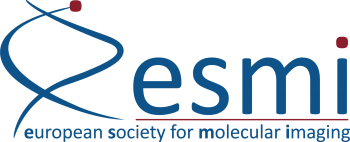 Check submission rules carefully, before proceeding to the submission system!
Check submission rules carefully, before proceeding to the submission system!
IT’S OPEN!
Submission period: 30 September – 18 November 2025
Quick reminder, that…
- The number of submissions as presenting author is limited to one (no limit on co-authorship).
- The overall number of submissions is limited to the top scored 750.
- You have to confirm that the work has not been published yet (at the time of the submission deadline) and
- was not presented at former EMIMs.
Submission Rules
- all abstracts must be submitted via the online submission system (button below)
- first time users (of the EMIM 2026 abstract system) need to create an account to enter the submission system
- login data for earlier EMIMs or your member login are not valid for the EMIM 2026 submission system
- make sure that your email address for the log-in is the same as for the actual submission (author email)
- your abstract must be submitted to one of the abstract category (see below)
- IMPORTANT! Make sure to provide data/figures to support your results & conclusion.
- you strictly have to follow the scheme:
Introduction
Methods
Results/Discussion
Conclusions
Acknowledgement (optional)
References (optional) - size limit: all in all 2850 characters (incl. space characters) divided into:
Introduction: 600
Methods: 800
Results/Discussion: 1000
Conclusion: 450
+ Novelty: 150
+ Impact: 150 - you can add a maximum of two figures/pictures (jpeg, png) each with a limited size file of 2MB
- application for the EMIM 2026 Young Investigator Award (check on eligibility criteria first here!) is possible during the submission process
- you will be able to make changes on your submission until the submission deadline (18 November 2025)
- all abstracts will be acknowledged upon receipt (subject: Abstract Transmission Report). If you do not receive an automated transmission report by email please contact the helpdesk or the ESMI office
- notifications on acceptance and type of presentation (poster/talk) will be sent on 5 January 2026 at latest.
Abstract Categories
Abstract categories per main (IN BOLD CAPITALS) category
Note that for 9 – In Vitro Models the main category = abstract category.
- PHYSICS, ENGINEERING & TECHNOLOGIES
- PET/SPECT, Hybrid Technologies
- MRI, MPI Technologies
- Optical Technologies
- Ultrasound, Optoacoustic Technologies
- X-Ray Technologies
- Spatial Tissue Omics (incl. MSI, Genomics)
- PROBE CHEMISTRY & REPORTER GENES
- PET/SPECT, X-Ray, CT
- MRI/MPI
- Optical, Optoacoustics, Ultrasound
- Theranostics, Multimodal Agents
- IMAGE DATA PROCESSING, ANALYSIS & MODELING
- Acquisition, Reconstruction & Processing
- Quantification & Analysis
- AI, Machine Learning, Data Modelling
- IMAGE-GUIDED THERAPY
- Image-Guided Drug Delivery
- Theranostic Applications
- Interventional & Surgical Imaging
- CARDIOVASCULAR & RESPIRATORY
- Cardiac Imaging
- Vascular Imaging
- Pulmonary Imaging
- CNS & PERIPHERAL NERVES
- Brain Structure & Receptors
- Brain Metabolism, Function & Perfusion
- Neuroimaging Tools in Disease Models
- ONCOLOGY
- Cancer Biology (incl. Metabolism) & Microenvironment
- Cancer Diagnosis
- Cancer Therapy (incl. Immunotherapy)
- IMMUNOLOGY, INFLAMMATION & INFECTION
- Immune System Dynamics
- Infection & Tissue Immunity
- IN VITRO MODELS
Technical support / Helpdesk
For any technical enquiries in regards to the EMIM 2026 abstract submission please contact EventClass
+49 (351) 30900031
email to the helpdesk
A word on scientific level & Review process
The scientific level of submissions is traditionally very high. Scientific quality and originality of your work is the sole basis for a decision on acceptance and presentation type (oral/poster). Each abstract is reviewed by at least 12 independent reviewers in a double blind reviewing process along the following parameters:
- Originality of Content
- Soundness of Conclusion
- Importance
- Quality
- Novelty
- Impact
